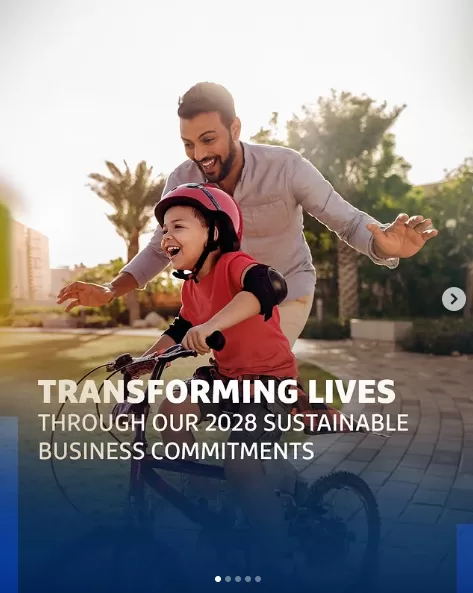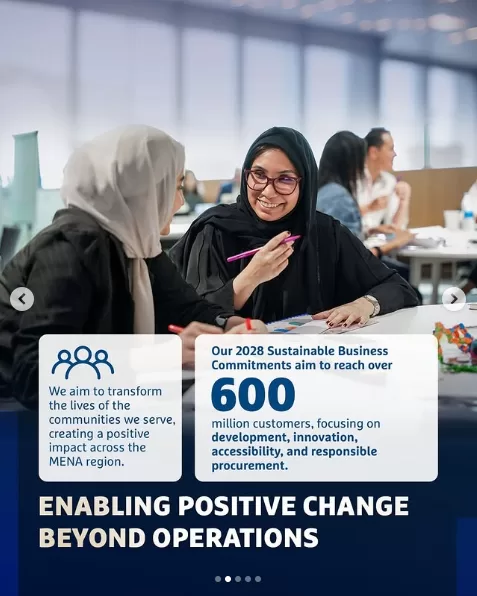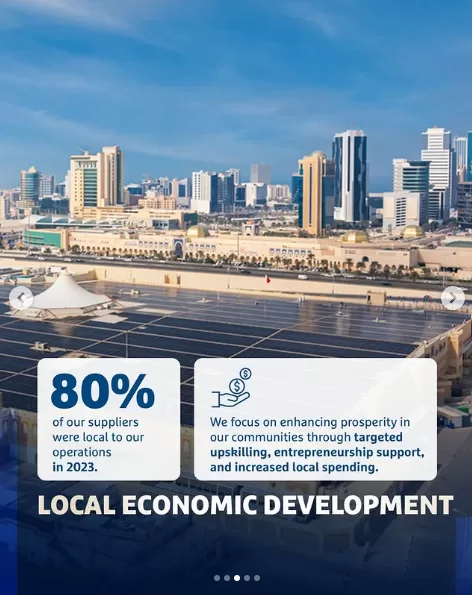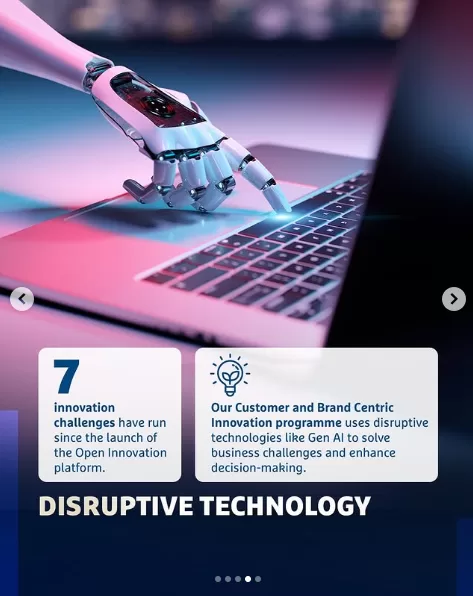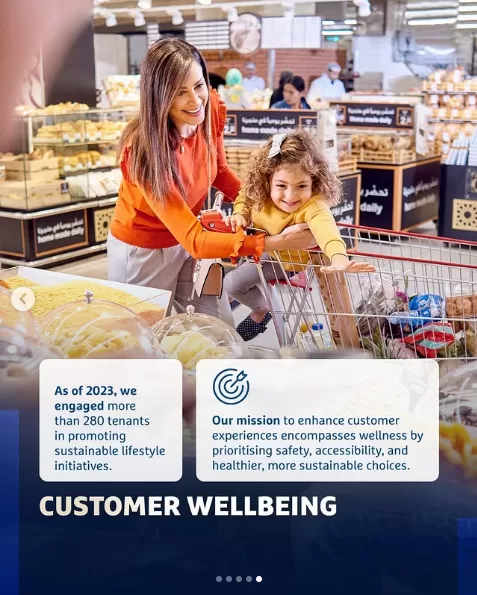Merry Christmas!

This week, we explore a topic that has surged to the forefront of modern business practices: Sustainable Marketing. As the global community grapples with environmental and social challenges, businesses in the MENA region recognize the potential of sustainability as a cornerstone of their marketing strategies.
What is Sustainable Marketing?
Sustainable Marketing is more than just a buzzword. It represents a transformative shift in how businesses approach their role in society. At its core, sustainable marketing integrates environmental, social, and economic considerations into marketing strategies. Aiming to satisfy customer needs while preserving the ability of future generations to meet their own. As Philip Kotler, one of the most influential voices in marketing, explains in his book Marketing 3.0, businesses must now balance profit with purpose, shifting from a purely transactional mindset to one that adds societal value.
The term “sustainability” itself stems from the broader concept of sustainable development. As defined by the Brundtland Commission in 1987: “development that meets the needs of the present without compromising the ability of future generations to meet their own needs.” Applied to marketing, this means designing campaigns, products, and business practices that respect ecological limits, promote social equity, and ensure long-term economic viability. Scholars such as Fisk (2006) and Hunt (2012) have identified sustainability as a “megatrend” in marketing. Emphasizing its potential to reshape industries and foster positive change.
From an operational standpoint, sustainable marketing often involves building long-term relationships with stakeholders, reducing environmental impact, and aligning corporate values with consumer expectations. Key principles include transparency, authenticity, and avoiding practices such as greenwashing. A deceptive tactic where companies falsely claim to be environmentally friendly. Sustainable marketing is not just a moral imperative. It is a strategic advantage in a world where consumers increasingly demand ethical and environmentally conscious brands.
In practice, sustainable marketing operates on three key pillars: environmental sustainability, social equity, and economic viability. These pillars are closely aligned with the United Nations’ Sustainable Development Goals (SDGs), providing businesses with a roadmap to address global challenges. For example, companies can reduce their carbon footprint by optimizing supply chains, improve social equity by ensuring fair labor practices, and maintain economic viability by delivering superior value to eco-conscious consumers.
Case Study: Majid Al Futtaim’s (MAF) “Net Positive” Sustainability Strategy

Among the numerous examples of sustainable marketing in the MENA region. MAF’s “Net Positive” strategy (2023 update) stands out as a model of technical execution and measurable impact. As a conglomerate operating across retail, leisure, and real estate. MAF embraced sustainability as a core component of its business strategy. With an emphasis on environmental restoration and social responsibility.
Objective and Strategic Thinking
The “Net Positive” strategy, launched in 2017, aims to achieve net positive carbon emissions and water usage by 2040. This initiative is rooted in the concept of sustainability as a driver of long-term profitability and societal value. MAF recognized that addressing environmental challenges such as climate change and water scarcity could not only reduce operational risks but also enhance its brand reputation and customer loyalty. This alignment between business goals and societal needs exemplifies the principles of sustainable marketing.
The strategy also reflects the influence of integrated marketing thinking. Emphasizing the importance of a consistent message across all stakeholder interactions. By embedding sustainability into its core operations and external communications, MAF ensured that its commitment was not just a marketing ploy but a genuine effort to drive systemic change.
Execution
MAF implemented a range of measures to achieve its ambitious goals. On the environmental front, transitioning to renewable energy sources across its properties, installed energy-efficient systems, and reduced water consumption through innovative technologies. MAF also introduced waste diversion programs, ensuring that a significant portion of waste generated at its malls and hotels was recycled or repurposed.
From a marketing perspective, MAF launched campaigns to educate consumers about its sustainability initiatives. These campaigns leveraged digital platforms, social media, and in-person events to engage audiences and foster a sense of shared responsibility. It also collaborated with local communities and governments to amplify its impact. Demonstrating the importance of partnerships in sustainable marketing.
Results
By 2023, MAF had achieved significant milestones. Including a 24% reduction in carbon emissions and a 54% diversion of waste from landfills. These achievements were not only environmentally beneficial but also economically advantageous. MAF reported increased traffic at its malls, higher satisfaction, and stronger loyalty, all of which contributed to its bottom line.
MAF’s “Net Positive” strategy illustrates how sustainable marketing can drive meaningful impact while delivering business value. Integrating sustainability into its core operations and marketing efforts, the company demonstrated that profitability and purpose are not mutually exclusive. This case study serves as a blueprint for other businesses in the MENA region. Highlighting the importance of transparency, innovation, and stakeholder engagement in achieving sustainability goals.
Sustainable marketing is a powerful framework that enables businesses to address societal and environmental challenges while maintaining economic viability. This approach can drive both tangible results and intangible benefits, such as enhanced brand reputation and customer loyalty. By adopting sustainable marketing practices, businesses in the MENA region can position themselves as leaders in the global sustainability movement, contributing to a better future for all.
For more similar content, subscribe to our newsletter at or contact us at info@mena-review.com to share your marketing strategies.

